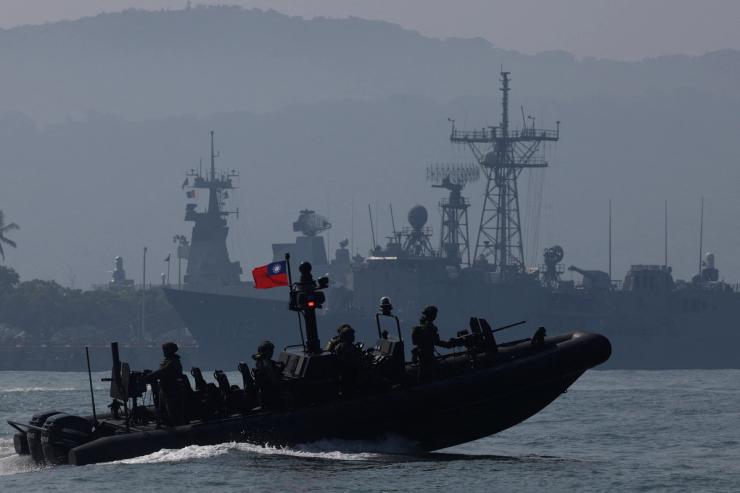The News
China has ramped up its naval surveillance around Taiwan, with a highly sophisticated drone carrier making repeated incursions into waters off the Taiwanese coast, the Financial Times reported.
The Zhu Hai Yun, a cutting-edge research vessel with links to the Chinese military, was found to have intruded in Taiwanese waters nine times since September, a significant uptick on previous incursions, tracking data analyzed by the FT showed.
The artificial intelligence-controlled ship is unmanned and capable of carrying tens of drones and submersibles. It scours the ocean collecting information on maritime conditions such as ocean currents – data also used in naval warfare, the FT noted.
The incursions come as tensions between Taipei and Beijing remain high following recent elections won by Taiwan’s pro-independence Democratic Progressive Party. China regards the self-governed island as a breakaway province and has not ruled out using force to reconcile it with the mainland.
SIGNALS
The research vessel could be key in China’s future undersea war plan
Beijing has deployed similar ships to research maritime conditions near the coastlines of Japan and the U.S. territory of Guam – where undersea warfare could take place in the event of a United States-China war. “Where the maritime research vessels go is where Chinese submarines will go in the future,” a Chinese maritime expert from the U.S. Naval War College told the Financial Times. Using the Zhu Hai Yun to map the undersea environment around Taiwan carries significant implications for a potential invasion of the self-governed island. According to Chinese state broadcaster CCTV, the ship can sail autonomously in open water for twelve consecutive hours, while it can also operate “dozens of unmanned aerial, surface and underwater vehicles simultaneously to monitor its surroundings and produce a data hub,” the South China Morning Post reported.
Taiwan and the US have yet to take meaningful action to deter Beijing
Beyond ships, the frequency with which Chinese aircraft entered Taiwan’s Air Defense Identification Zone – a perimeter zone just outside the island’s waters and airspace – soared from nearly 400 times in 2020 to more than 1,700 last year — a pattern that has received no “meaningful” response from Taipei or Washington, argued Ben Lewis, an independent defense analyst, in a New York Times op-ed. “The [People’s Liberation Army’s] now-normalized presence around Taiwan raises the risk of accidental confrontation,” he wrote, adding that it has “created a dangerous sense of complacency” in Taiwan and Washington while giving China “crucial operational practice” for a potential war. That danger is heightened by the fact that Beijing and Taipei have had no official contact for eight years, as Taipei has been governed by the pro-independence, China-skeptic Democratic Progressive Party, and will continue to be, under incoming president William Lai.
Others say economic consequences make an invasion unlikely
The economic impact of a China-led invasion, particularly given Taiwan’s “crucial role” in global semiconductor manufacturing, had led several experts to question how likely it is in reality.
The fallout from any conflict would likely hit China harder than the West, Alexis von Sydow, an analyst from the Swedish Institute of International Affairs, argued in The Diplomat. “It is hard to imagine that China does not realize this or refuses to take it into account when weighing the possibility of using force,” he added.
Beijing is more likely to work behind the scenes to influence Taiwan politically rather than start an armed conflict, Craig Singleton, a China fellow at The Foundation for Defense of Democracies wrote in Foreign Policy. With no single party holding a majority in Taiwan’s parliament, the Democrative Progressive Party (DPP) may struggle to pass legislation that is unfavorable to Beijing. “If anything, the DPP’s diminished standing suggests Beijing will double down on the political war it is already waging and winning,” Singleton argued.



